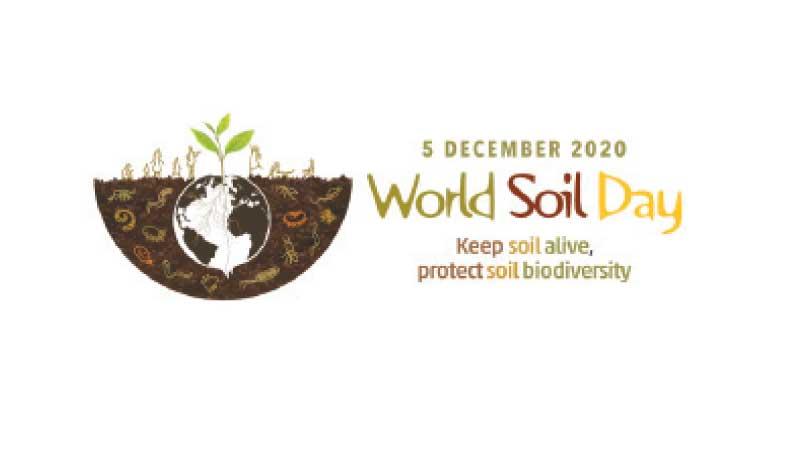
Soil biodiversity is key to ensure food security, said FAO Representative for Sri Lanka and the Maldives, Dr. Xuebing Sun in a statement to mark World Soil Day on December 5.
“Soil is an ecological system and it is a finite resource, meaning its loss and degradation is not recoverable within a human lifespan. Conservation of soil biodiversity and soil organic carbon through sustainable farming practices is essential to improve soil health and agricultural productivity,” said Dr. Sun.
Dr. Sun reiterated that fighting loss of soil biodiversity is key to global food security and the achievement of more than half of the Sustainable Development Goals. Soil biodiversity plays a vital role in the soil ecosystem as soil organisms are responsible for nutrient cycling, regulating the dynamics of soil organic matter, soil carbon sequestration and greenhouse gas emissions and allowing soils to function properly. Soil biodiversity plays a central role in preserving human health through a range of pathways including water purification, climate stabilisation and nutrient and food security. Plants surrounded by biodiverse soils also have a greater resilience against pests and diseases, he said.
In Sri Lanka, programs are being implemented to support Sustainable Land Management (SLM) through Sustainable Soil Management (SSM) practices. Promotion of site-specific fertiliser application which was piloted in 2017 by the Department of Agriculture with funding from FAO is one such initiative.
A vast majority of farmers apply inorganic fertiliser and agrochemicals indiscriminately to crops which leads to environmental pollution such as soil pollution and contamination of surface and groundwater sources which impact human health. Soil test kits and plant test kits were introduced to encourage farmers to test soil fertility level before fertiliser application. This has resulted in a nearly 40 percent reduction in inorganic fertiliser application in areas where site specific fertiliser application was practiced, and steps are being taken to make these test kits widely available across the country.
Approximately 50 percent of agricultural lands in the Central Highlands of Sri Lanka is degraded which has adversely impacted the livelihoods of farmers. Soil biodiversity loss has been recognised as the main issue in the Central Highlands especially in farmlands and estates. The Rehabilitation of Degraded Agricultural Land Project (RDALP) implemented by the Ministry of Environment, the Department of Agriculture (DoA), and FAO with funding from the Global Environment Facility (GEF) has introduced various initiatives to protect and improve soil biodiversity in the Kandy, Nuwara Eliya and Badulla districts.
“The strong collaboration between stakeholders in the agriculture sector towards conserving natural resources sends a clear signal,” said Dr. Sun.
In the past 50 years, advances in agricultural technology led to a quantum leap in food production and bolstered food security. However, this intensive crop production has depleted the soil, jeopardising our ability to maintain production in the future. To feed a growing population, it is important now more than ever to ensure that farming is done in an environmentally friendly manner, where not just livelihoods but our natural resources are placed in the centre,” he emphasised.
